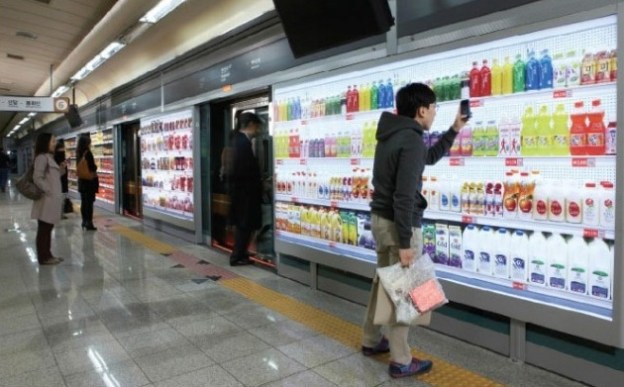
One inventive South Korean supermarket chain is using technology to completely change the way we buy groceries. Noticing that it was a distant second in the grocery store market in Korea, Tesco embarked on an innovative ad campaign to get people to use its online shopping services, reports Technology Review (via Laughing Squid).
The first step: it changed its name to “Home Plus.” After the rebranding, it began installing supermarkets inside subway stations. But these weren’t actual stores. Instead, Home Plus posted up precise picture recreations of its grocery store isles in areas where pedestrians would normally spend time waiting for their subway train to arrive. Using scannable QR codes and a smartphone app, people could actually buy their groceries from the virtual store and have them delivered to their doorstep by the time they arrive at home. Cool? You betcha.
The virtual grocery store has attracted more than 10,000 new customers and boosted Home Plus’s online sales by 130 percent. The retailer is now number one online and a very close 2nd in physical grocery sales in South Korea. With Amazon and Walmart already working on home food delivery services here in the United States, it may only be a matter of time before an idea like this springs up in a subway near you.
“For sure, your cell phone will be the graphical user interface to the shopping services,” Abel Sanchez, research lead at MIT’s Intelligent Engineering Systems Laboratory told TR. “Think of the early days of the Web versus today. In the early 1990s, the Web was one way, like a paper book. Today, the Web is full of interaction; it’s how we do our jobs. I think the supermarket will go through a similar transformation.”
Would you mind shopping for a few groceries as you wait for the train to come in?


